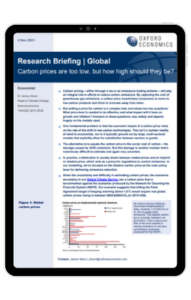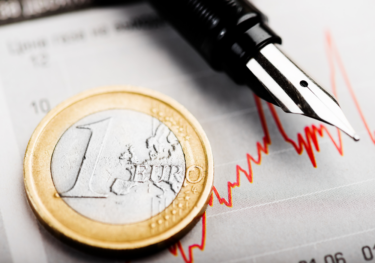Global | Carbon prices are too low, but how high should they be?

Carbon pricing – either through a tax or an emissions trading scheme – will play an integral role in efforts to reduce carbon emissions. By capturing the cost of greenhouse gas emissions, a carbon price incentivises consumers to move to low-carbon products and firms to innovate away from them.
What you will learn:
- One fundamental problem is that the economic impact of a carbon price rests on the rate of the shift to low-carbon technologies.
- This isn’t a number readily at hand to economists, nor is it typically ground out by large, multi-sectoral models that explicitly allow for substitution between sectors or goods.
- The alternative is to equate the carbon price to the social cost of carbon – the damage caused by GHG emissions.
Tags:
Related Services

Post
Nowcast shows wage growth slowing sharply
Our sentiment data, developed with Penta, suggests that UK private sector wage growth slowed sharply in March and early-April. If official data mirrors our sentiment indicator, it should keep the Monetary Policy Committee on track to cut interest rates in the summer.
Find Out More
Post
The euro and depreciation – shake, shake it off
Our new forecast assumes a slower euro appreciation against the dollar over the coming years than we previously anticipated. Relative productivity, terms of trade, and the current account will likely be less supportive of the euro than we thought. In addition, a stronger stock market than initially envisaged will attract more financial flows into the US than we had expected.
Find Out More